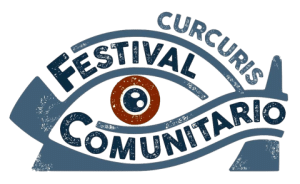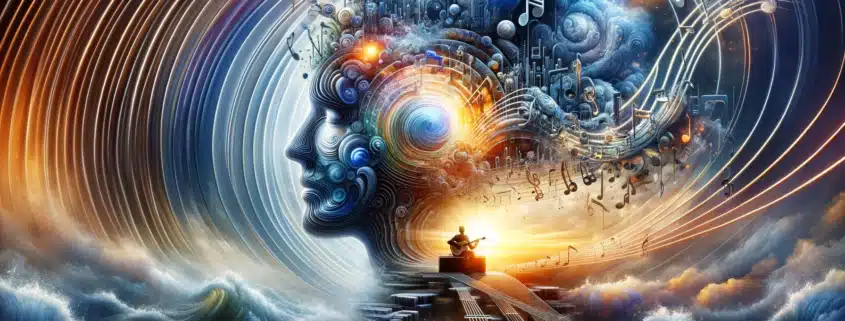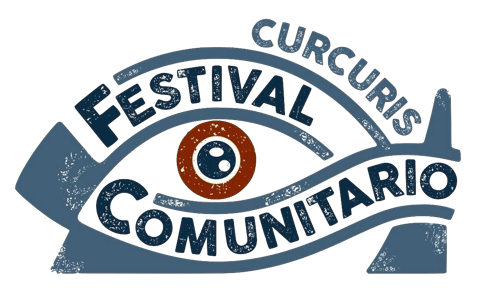Music and the development of awareness
The abstract narrative of music.
Freed from the fetters of fashion and self-commodification, untethered and independent from playful and utilitarian roles as well as from the function of mere narrative support for words and images, music finally acquires the dimension of pure and independent art.
And in this way, his peculiar 'abstract musical narrative' can finally 'tell about itself' with perfect expressive dignity.
What is music about when it is not intended to support other contexts?
It can speak to our subconscious, soliciting human archetypes through the emotional symbols it may contain, woven in the form of musical and sonic phrasing over the textures of conventional music form and aesthetics.
Musical forms change over time in the same way as their aesthetic codes, whereas archetypes remain unchanged as expressions of our deep human nature.
If music only responds to form and aesthetics, it can still offer a more or less appreciable artistic value depending on the quality and elaborate brilliance of its architecture; however, in this way it remains on the 'surface' and its artistic value is of secondary importance, as it is not accompanied by 'a profound narrative element' representing the aforementioned archetypes, i.e. the deepest, most rooted and shared human elements: fears, needs, desires, dreams and whatever else 'tells' of the human spirit.
Archètypeaccording to Jung: primordial image contained in the collective unconscious, which brings together the experiences of the human species and the animal life that preceded it, constituting the symbolic elements of fables, legends and dreams. (Treccani)
The growth of awareness.
The artistic 'musical tale' can thus express itself through 'sound symbols' capable of evoking such archetypes and making them conscious, depending on the case by relieving us of part of their burden or opening us up to new horizons of the spirit, always irresistibly orienting our existences towards the instances of our deepest essence.
Musical art thus proceeds from technical and logical skill, but also (and above all) from the conscious and unconscious emotional sensitivity of the artist, whether it is the result of research work, inspiration, instinct, or more often a combination of these elements.
By working through the form and aesthetics of composition, the artist with a capital 'A' can give such a powerful and unexpected emotional jolt to the 'initiated' listener that he is forced to break through the shell of ordinary consciousness to lead him to a partial discovery of the Self and the Universe; and all this without resorting to logical concept and language, which are ineffective means to accomplish this 'magic'.
Towards a Musical Renaissance: Challenges and Solutions.
That said, music is certainly the most abstract and profound of the arts, but our age is destroying it through its trivialisation and commodification.
Like any 'mystery' manifestation, initiation into the depths of music is therefore crucial, a personal and progressive journey towards it and its essence, articulated in various stages: encounter, recognition, knowledge, understanding, love.
Indeed, in an era where music is often reduced to a mere commercial product, creating songs that embody genuine narrative and spiritual 'magic' becomes an arduous task. The predominance of fashions and superficiality, often fuelled by insatiable consumerism and an oligarchic system that dominates the industry, represent significant barriers. This situation is further aggravated by the speed at which trends change, leaving little room for in-depth study and true artistic appreciation.
The reasons for this challenge lie mainly in the way the music industry is structured. The pressure to generate immediate profits often pushes towards the production of music that is easily digestible and popular in the short term, thus neglecting the qualities that make music a vehicle of deep spiritual and emotional expression. Moreover, the massive dissemination of music through digital platforms has created an environment where abundance and ease of access often stifle works of greater intrinsic value, making it difficult for listeners to find and appreciate true art.
To counter this trend and promote a musical renaissance that enhances the spiritual essence of music, several initiatives can be undertaken. First of all, the promotion of educational and cultural initiatives that raise public awareness of the importance of artistic quality in music is crucial. This could include workshops, conferences and collaboration with educational institutions to integrate quality music into the curriculum.
Moreover, the creation of platforms and spaces, both physical and digital, dedicated exclusively to high-quality music can provide artists with a place to express themselves freely, away from commercial pressures. These spaces could host concerts, exhibitions, and other events that foreground music as a pure art form.
Another crucial aspect is to support artists who are dedicated to creating deep and meaningful music. This can be done through direct funding, but also through recognition and appreciation of their work on a social and cultural level.
In summary, in order for music to fulfil its noblest spiritual task, a collective effort is needed to recognise and overcome the challenges imposed by the current musical landscape. Through education, the creation of dedicated spaces, and support for truly committed artists, we can pave the way for a musical renaissance that enriches the human spirit to the core.
Conclusion.
As we approach the end of this journey of reflection, an invitation arises to re-embrace music with a new awareness. It is a call to listen not only with our ears, but with our heart and soul, rediscovering music as an art form that speaks directly to the deepest recesses of our being. This requires a change not only in the way we listen, but also in how we perceive and appreciate the art of music. Only then can we begin to shape a taste that fosters and celebrates depth and authenticity, helping to restore music's true dignity and transformative power. In this renewed approach, each note becomes an opportunity for a deeper journey within ourselves and the universe around us, a chance to awaken that spell that 'true music' has always had the power to evoke.




Leave a Reply
Want to join the discussion?Feel free to contribute!